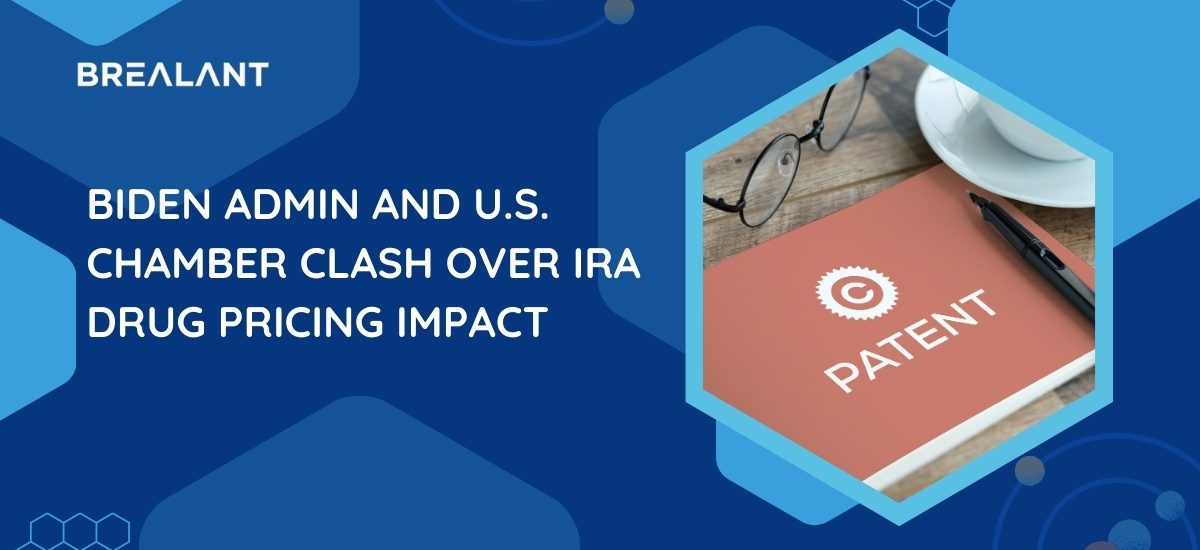



The Biden administration’s pursuit of lower drug prices through the Inflation Reduction Act (IRA) 2022 has sparked a contentious legal battle with the U.S. Chamber of Commerce. This clash revolves around the government’s initiative to negotiate Medicare drug prices, with critics arguing that it could lead to unintended consequences for pharmaceutical companies and patients. As the courtroom drama unfolds, stakeholders are left pondering the potential ramifications of this high-stakes confrontation.
Enacted in 2022, the Inflation Reduction Act empowers the U.S. Department of Health and Human Services (HHS) to negotiate drug prices with pharmaceutical companies participating in Medicare. The negotiation process hinges on factors such as a drug’s duration on the market. However, what seems like a bargaining table is perceived by critics as a veiled mechanism for enforcing mandatory price controls.
Opponents, spearheaded by the U.S. Chamber of Commerce, assert that the IRA’s negotiation framework lacks voluntariness. They point to the threat of onerous excise taxes and limited avenues for drug manufacturers to exit the Medicare program. Furthermore, concerns loom over potential patient access disruptions if companies withdraw their drugs from the market in response to unfavorable negotiations.
The courtroom becomes the battleground where the clash between the Biden administration and the U.S. Chamber of Commerce peaks. In early June, the Chamber filed a lawsuit against HHS, challenging the constitutionality and legality of the IRA’s drug pricing controls. Allegations range from statutory constraints that hinder manufacturers from leaving Medicare to the coercive nature of the negotiation process.
Despite the Chamber’s efforts, both its motion for a preliminary injunction and the government’s motion to dismiss were denied in September 2023. This legal stalemate sets the stage for a protracted battle as each side remains steadfast in defending its stance.
Amidst the legal wrangling, the fate of patients and the pharmaceutical industry hangs in the balance. Neil Bradley, Executive Vice President and Chief Policy Officer of the U.S. Chamber of Commerce, warns of dire consequences for American patients. He highlights the potential fallout from reduced access to essential medications, echoing concerns raised by a Global Intellectual Property Center (GIPC) report.
The report underscores the broader implications of implementing national price controls on medicines. It warns of diminished innovation and prolonged wait times for new drugs, drawing parallels with experiences in other OECD economies. With drugs like Eliquis, Jardiance, and Enbrel on the negotiation table, the stakes are high for patients reliant on these life-saving medications.
As the legal battle rages on, stakeholders must contemplate the path forward. The Biden administration is committed to addressing rising healthcare costs through drug price negotiation. Conversely, the U.S. Chamber of Commerce continues its advocacy against what it perceives as coercive government intervention in the pharmaceutical market.
Finding common ground amidst divergent interests poses a formidable challenge. Balancing the need for affordable medications with fostering innovation and access to cutting-edge treatments demands nuanced solutions. Engaging in constructive dialogue and exploring alternative approaches could offer a way to reconcile competing concerns.
The clash between the Biden administration and the U.S. Chamber of Commerce over Medicare drug pricing reflects a broader debate on healthcare affordability and innovation. While the IRA represents an earnest effort to rein in escalating drug costs, its implementation has sparked controversy and legal challenges. As the courtroom drama unfolds, the impact on patients and the pharmaceutical industry remains uncertain. Navigating a path forward that reconciles competing interests is imperative to ensure access to vital medications without stifling innovation. Only through collaborative efforts and thoughtful policymaking can we forge a healthcare system that serves the needs of all stakeholders.